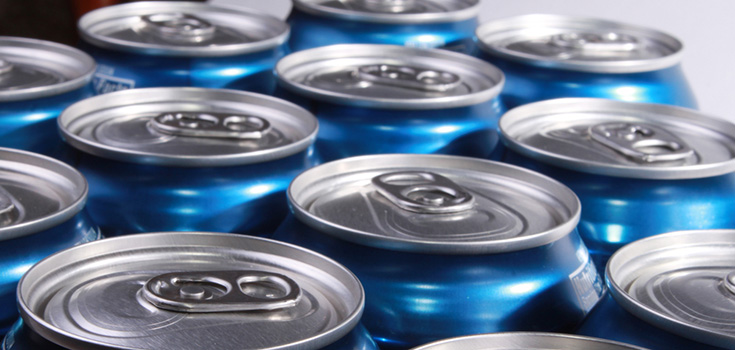Sugar-Free Products Lead to Obesity, Tooth Damage, and Cancer

Artificial sweeteners and ‘sugar free’ alternatives were once a fad of sorts; but manufacturers have produced many alternatives to conventional sugar sweetening. Unfortunately, the majority of these artificial sweeteners like aspartame and sucralose have been found to be considerably more dangerous than sugar itself – leading to tooth decay, obesity, and even cancer.
The appeal behind ‘sugar free’ sweeteners is that they provide less calories, and are seemingly a healthful alternative for individuals conscious of their sugar intake. This especially holds true for diabetics, who oftentimes reach for the sugar free label in grocery stores worldwide. Posessing the sweet taste without the sugar allegedly allows you to avoid typical health risks associated with increased sugar intake, like increased cancer growth and development, weight gain, increased blood sugar, immune suppression, tooth decay and many other health problems.
Artificial Sweeteners Like Aspartame Worse than Regular Sugar, Lead to Cancer
Despite this, many artificial sweeteners like aspartame and sucralose have been found to have even worse effects on your health than normal sugar ever would. Aspartame, made in an unnatural process involving genetically modified bacteria, has been found to have addictive qualities, and cause cancer. Sucralose has been found to contain a dangerous form of chlorine. Despite being sugar derived, sucralose is not sugar. Even more concerning is the fact that surcalose has been found in the drinking water.
What’s more is that the initial appealing qualities that have attracted people to these refined sweeteners have been disproven. Artificial sweeteners are increasingly being linked to increased weight gain and blood sugar, cancer, and tooth decay — one of the main conditions that sugar free brands claim to prevent. In the more serious realm, artificial sweeteners like aspartame have even been linked to brain tumors and other serious health conditions.
The fact that 320 aspartame fed rats developed six brain tumors by seventy-six weeks indicates an “incredible and unprecedented” occurrence. Excitotoxins by Russell L Blaylock MD, page 213
Essentially, switching sugar out for alternative sweeteners like aspartame and sucralose is even worse for you than just eating regular processed sugar, which is unnerving when these products are being labeled as safe alternatives. Claims of improved health through consumption of sugar free brands are not only incorrect, but a real health threat to gullible consumers.
Despite the slew of dangerous alternatives, there are healthy alternative natural sweeteners available as well. Stevia, a natural sweetener used by many health-conscious individuals, actually has the power to help stop diabetes and cancer. In fact, if the worldwide food industry were to replace traditional fructose with Stevia, it would most likely result in an extreme reduction in global obesity rates.
Another powerful habit is avoiding foods that contain high amounts of sugar and refined carbohydrates. A majority of health issues can be linked to the fact that the average sugar intake is much higher than it should be. The preferred amount is 20g daily, according to many health experts. On average, people consume over 100g of sugar per day in various forms, which the body exerts a massive amount of energy processing.
In addition to Stevia, organic raw honey also acts as a tasty natural sweetener. Honey, though having more calories, also has many other health benefits in its raw form. In general however, it’s important to reduce the amount of sugar you consume daily, which is hard to do if you are eating the average consumer diet. If you can reduce your sugar consumption and avoid dangerous manufactured artificial sweeteners, you will most certainly notice the difference in your waistline and overall biological function.
Additional Sources:

Best alternative to real sugar that I've found is Whey Low. Look it up and read all the great benefits. It was speccially formulated for a Doctor's wife by the doc himself…she developed diabetes. The sugar can be used like real sugar. I love it…check it out!!
Go for Xylitol, heals tooth enamel high in trace minerals and tastes exactly like sugar. Made from tree bark…..hands down the best sweetner
Your claim : reference supporting claim ratio seems to be a little hight
Stevia, stevia, stevia.
Also helps in blood sugar control.
Look for real stevia–not Truvia (from the folks at Cargill).
Stevia is wrongly classified as a 'supplement' in the US because if it were approved as a sweetener, more people would know about it & not poison themselves with Splenda (sucralose) and aspartame.
Stevia got GRAS status in the U.S., though– Generally Recognized As Safe– has been used elsewhere for decades with no ill health effects (not even a real link to prostate cancer, which some have murmured about–while links to many kinds of cancer with aspartame have been proven).
Anyone who tells you stevia isn't safe is selling you something.
Sugar alcohols are hard to digest, particularly in large quantities.
Would have liked more info on the tooth decay connection, though– I am trying to persuade someone that it's not just the carbonation in diet soda that harms teeth, but the aspartame as well. Anyone with any info on this specifically would be greatly appreciated.
Thank you.
Ansal Properties & Infrastructure Limited, a leading real estate
developer in India, has received a formal approval from the Department of Commerce (SEZs), Govt.
of India to develop an Engineering-based Special
Economic Zone (SEZ). The SEZ, spread over 250 acres, is coming
up on the Amritsar-New Delhi Grand Trunk Road
Sushil Ansal Chairman of Ansal API and Chancellor of Ansal University.
Too much intake of those would definitely make us bulging as those are sugar and stored as fat if not burned with exercises.
Shri. Sushil Ansal serves as the Chairman of the Board and
Whole Time Director of Ansal Properties & Infrastructure Ltd.
(also known as Ansal Properties & Industries Ltd.).